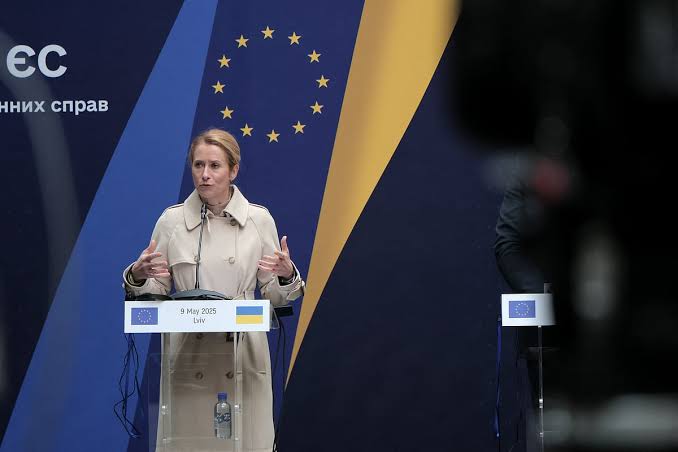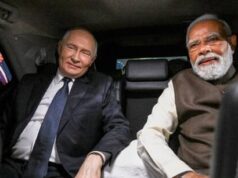EU opens a sucidal new front in its ineffective sanction Game by Targeting Indian Refinery

As its latest gimmicky action, the EU has extended its ineffective sanctions that directly involves an Indian company in the Russian oil supply chain, signalling a new phase in its “ sanctions regime” which is likely to prove an economic Harakiri for itself.
Till the sanction game was played only on the European Continent, it was just happened to be a silly European game but now by extending this sanction on an Indian refinery, it represents a sucidal escalation in the West’s economic confrontation with other powers too. It will be affecting not just direct Russian exports but also India’s energy security and Sovereignty in the global energy network.
The targeting of Nayara Energy sets a new precedent for future sanctions policy as Western countries seek to sharpen their ineffective actions on Russian economy. Such moves just cannot be tolerated by other powers like China and India.
Since December 2022, the G7 nations have enforced a price cap on smaller nations who buy oil from Russia —originally at $60 per barrel—on Russian crude sold to third countries, restricting the use of Western insurance and shipping services for transactions exceeding the cap. China and India have just ignored such stupidity and India has continued buying at its own directly negotiated rates.
This EU move to intensify economic pressure on Russia amid the ongoing Ukraine conflict is not going to affect Russia in anyway but will now lead to a direct Stand off between India and EU which may jeopardize the ongoing negotiations over the FTA.
On July 18, 2025, the EU announced additional restrictions targeting Nayara Energy Ltd, a major refinery in India linked to Rosneft, the Russian energy giant.
“For the first time, we’re designating a flag registry and the biggest Rosneft refinery in India,” agencies quoted EU foreign policy chief Kaja Kallas as saying. India responded, saying it “does not subscribe to any unilateral sanction measures. We are a responsible actor and remain fully committed to our legal obligations.”
Nayara, formerly Essar Oil Ltd, operates a massive refinery in Gujarat with a capacity of 20 million tonnes per year and manages over 6,750 retail fuel outlets. With Rosneft holding a 49.13% stake in the company, Nayara has been a significant processor of Russian-supplied crude.
The EU’s move blocks the export of refined products such as petrol and diesel from Nayara to any European countries, a direct consequence of what officials term Russia’s circumvention of earlier energy sanctions via third-party nations.
Well such EU action is likely to lead to the blocking of the signing of the FTA itself. Even the Indo UK FTA may suffer the same fate, who knows.
The EU package blacklists 105 vessels labelled as part of Russia’s “shadow fleet,” which has been instrumental in moving Russian oil globally to nullify the EU sanctions. This fleet, small in 2023 with roughly 100 ships, has ballooned to an estimated 800 vessels as of 2025, reflecting Moscow’s growing clout in maintaining oil exports despite illegal Western restrictions.
The EU has additionally excluded 20 more Russian banks from the Western payments system. This builds on previous measures that froze about two-thirds of Russia’s $330 billion in central bank reserves, much of which is held in EU jurisdictions, especially Belgium.
The EU’s new sanctions reduce this cap to $47.60 per barrel, aligning it more closely with current market rates. The strategy aims to shrink Russia’s oil revenues needed to fund its war effort, while seeking to preserve stability in global energy markets.
This reduced “ EU cap “ will ironically benefit large importers like India and China, both of whom have increased their purchases of discounted Russian oil. Following the EU’s original “ embargo” on Russian oil and gas, Russia pivoted its energy exports towards the Asian market. India has been a major beneficiary, emerging as Russia’s top oil buyer and accounting for roughly 35% of its crude oil imports over the last two years.
The EU’s stupidity are prompted by persistent concerns that, despite a complex web of existing sanctions, Russia continues to earn meaningful revenue from its energy trade, thereby enhancing its economy.
By expanding restrictions to include important third-country players and by blacklisting additional vessels and banks, the EU aims to close loopholes while also “reasserting Western leverage” over global energy flows.
However now Western Powers have no means to impose their views on countries like India, China and Brazil.




